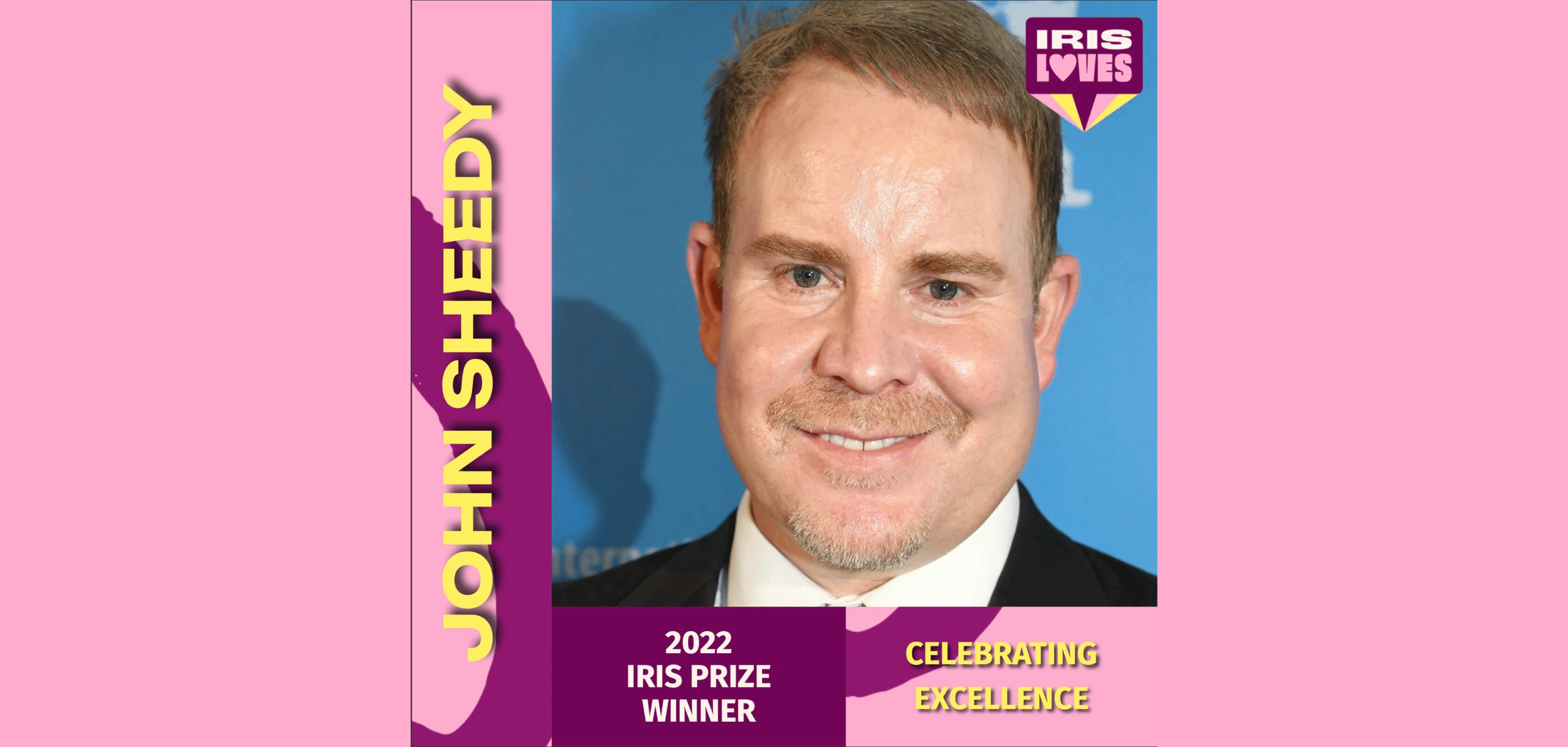As the final feature in our Australia at Iris series, we caught up with John to talk about his creative journey, the making of Never, Never, Never, and what Australian filmmakers bring to queer storytelling on the world stage.
Scroll down to read the full interview and get a glimpse behind the scenes before the world premiere.
- Let’s start with Tarneit, your powerful and visually striking short. What drew you to this story, and what was your reaction when it won the Iris Prize in 2022?

In their hearts, deeper feelings for each other were developing — feelings that had no accepted place in their immediate surroundings, where expression and vulnerability were often stifled. The beauty and striking nature of sign language became a profound symbol in this narrative, representing not just their means of communication but also the depth of their connection and understanding of one another. Among the abuse and chaos of their environment, this shared language offered a sanctuary, a way to articulate emotions that might otherwise remain unspoken.
Interwoven with elements of magical realism, Tarneit not only reflects the unique challenges confronted by these young individuals but also celebrates their spirit and the courage to dream against the odds. This story serves as a poignant reminder that even in the midst of desolation, hope and connection can bloom in the most unexpected ways. It’s a transformative journey that underscores how our circumstances do not define us; rather, it is our friendships and aspirations that ultimately illuminate our paths forward and offer possible exits, showing that love and understanding can exist even in the harshest of environments.
With regards to my reaction winning the IRIS prize, well, I think we all saw that clip, much to my horror!
- Mrs McCutcheon connected deeply with audiences at Iris, winning the Youth Award in 2018. What does that recognition from young people mean to you as a storyteller?
As a storyteller, this recognition underscores my commitment to portraying diverse experiences authentically. Trans children often endure significant challenges, including societal misunderstanding and a lack of representation. By placing a spotlight on their journeys, particularly within the realm of single parenting, we create narratives that not only validate their feelings and experiences but also foster empathy and understanding in the wider community.
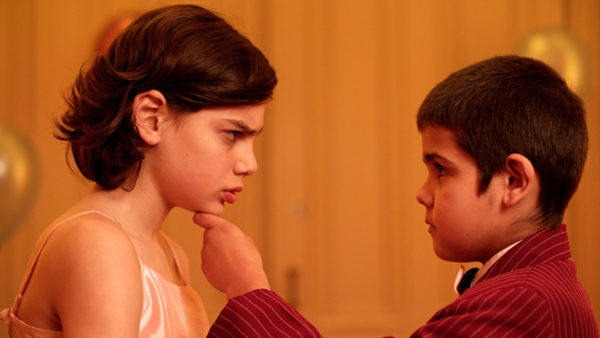
The power of storytelling lies in its ability to inspire change. Hearing from young people who see themselves reflected in characters like Mrs. McCutcheon, or who relate to the nuances of being raised by a single parent, reinforces the importance of inclusive narratives. It also empowers these young viewers to embrace their true selves and encourages them to advocate for a world that celebrates diversity. Recognition from young people not only fuels my passion for storytelling but also emphasizes the responsibility we have to continue crafting stories that uplift and represent marginalized voices. In doing so, we pave the way for a more compassionate and inclusive future.
- You’ve now made Never, Never, Never in Wales as part of your Iris Prize journey. How did it feel to create a film in a new landscape, and what inspired this particular story?
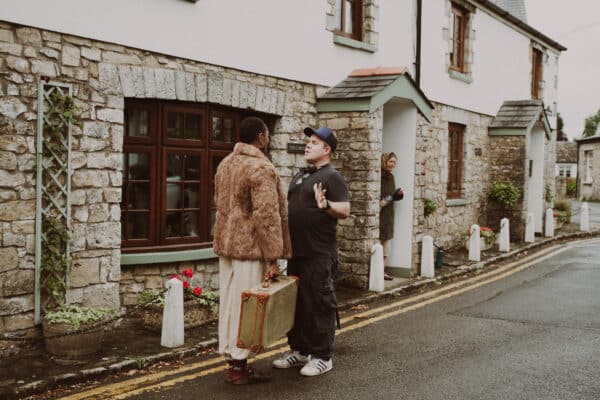
As I delved into this project, I realized that I was organically crafting a trilogy of short films that continued the journeys of the characters from my previous works. By gradually lifting the ages of the characters across these stories, I was able to explore the evolving dynamics of relationships, presenting romance through different lenses as they navigate the complexities of life and love over different times and different backdrops.
Filming in such a vibrant landscape allowed me to immerse myself in the local culture and community, enriching the narrative with authenticity. The interactions with local residents, the unique charm of the setting, and the natural elements we incorporated into our production elevated the project, making it a truly unforgettable part of my Iris Prize journey. Ultimately, Never, Never, Never is not just another chapter; it’s a heartfelt exploration of romance, hardship and beauty, all while celebrating the iconic spirit of Shirley Bassey in the process.
- Never, Never, Never explores themes of love, loss, and transformation. How do these themes connect with your personal artistic journey?
Love, in all its forms, has always been at the core of my storytelling. Whether it’s the pure, exhilarating joy of new romance or the deeper, more complex bonds that develop over time, or the heartbreak that comes with unrequited love. Capturing these emotions allows me to connect with a global audience on a fundamental level. I believe that the exploration of love is essential because it shapes our relationships and our understanding of ourselves, plus I’m a bit of a romantic at heart.
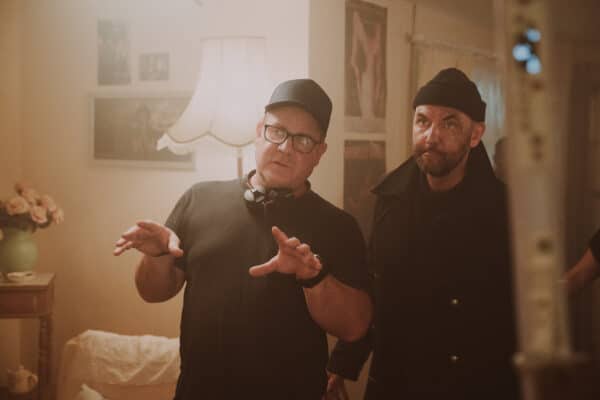
Loss, too, is a theme that has woven itself into my work, whether it be heartbreak or grief. My own experiences with loss have definately informed my storytelling, pushing me to create narratives that honour not just the pain of profound loss but also the beauty and the struggle of remembering and moving forward.
Transformation serves as the underlying thread that ties these themes together. Everyone experiences change; it’s an integral part of the human experience. The process of filmmaking itself is transformative—not just for the characters but also for the creators involved. Each project is an opportunity for growth, both artistically and personally. Through the act of storytelling, we can explore different perspectives, challenge our beliefs, and evolve as individuals.
Engaging with these themes presented in Never, Never, Never allowed me to delve into my own journey while inviting viewers to reflect on their experiences. With a keen desire to reach a global audience, I strive to create narratives that are accessible and resonate universally, all while maintaining a sense of commercial appeal. This approach allows me not only to tell stories that reflect the complexities of human life but also to ensure that these tales can be appreciated by a diverse range of viewers.
- From Mrs McCutcheon to Tarneit and now Never, Never, Never, your work often centres marginalised voices and identity. What keeps bringing you back to these narratives?
What continually draws me back to these narratives is the richness they offer in terms of authenticity and emotional depth. Marginalized voices often convey the most profound and poignant truths about society, reflecting the challenges and resilience that come with navigating identities that are frequently overlooked or misunderstood. By showcasing these perspectives, I aim to create a space for dialogue and empathy, allowing audiences to connect with characters whose stories might resonate with or challenge their own experiences.
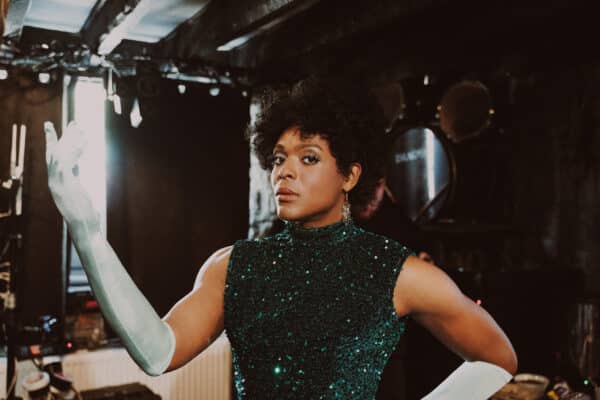
Additionally, I recognize that my own journey intersects with those of the characters I create. Each film allows me to process aspects of my life, whether it’s grappling with the complexities of identity, reflecting on relationships, or navigating the landscape of love and loss. These themes resonate deeply with me, and as I continue to grow, my understanding of them deepens, which in turn enriches the stories I want to tell.
Returning to marginalized narratives is a way to advocate for representation in media. It’s crucial that diverse voices are not only heard but celebrated, and I feel a sense of responsibility to contribute to this ongoing conversation. By amplifying these stories, I hope to inspire others to share their journeys as well.
- What was the experience like working with the Iris team in Wales? Any favourite behind-the-scenes moments you’d like to share?
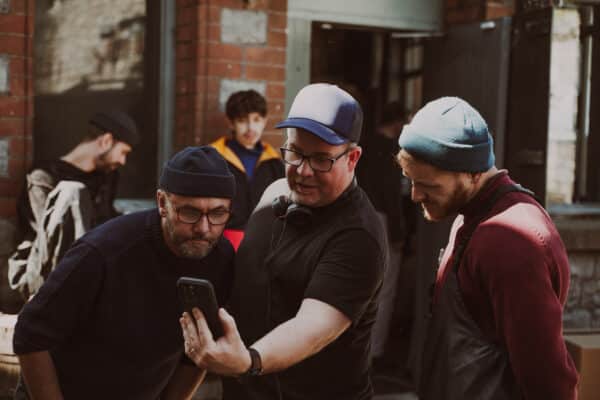
One of my favorite behind-the-scenes moments was undoubtedly collaborating with Kris Francies. While it’s not polite to have favorites, I'm going to be impolite and say this collaboration was a highlight for me, Kris’s, enthusiasm for the project and his unique insights brought such energy to the set. Whether we were scouting locations, brainstorming ideas or navigating last-minute changes, his positive attitude, sense of humour and creativity were infectious. That said, the warm spirit of the Iris team in Wales and the creativity we cultivated together was an experience that will stay with me for a long time and I look forward to continuing some of these collaborations into the future. It’s these experiences that remind me of the power of storytelling.
I also particularly enjoyed failing to pronounce the road signs and towns which seem to contain every letter of the alphabet! Why?
- You’re the fourth Australian filmmaker to win the Iris Prize—and three of those wins came back-to-back! What is it about Australia that connects so strongly with the Iris audience and jury? Or is it just something in the water?
The connection with the Iris Prize can also be traced to a shared sense of empathy and understanding for marginalized voices, especially with the LGBTQIA+ community that both Australian filmmakers and Iris audiences champion. Our storytelling often highlights the intricacies of identity, personal journeys, and the exploration of what it means to belong—parallels that resonate with the festival's mission.
In essence, it feels like a combination of our extraordinary landscapes, our commitment to telling diverse stories, and that undeniable “something in the water” - great white sharks, deathly toxic jellyfish, patrolling crocodiles, whatever it is, it’s clear that Australia has a powerful presence at the Iris Prize, and I’m proud to be a part of that ongoing narrative.
TEASER - NEVER, NEVER, NEVER
- What’s next for you? Are there any new projects you’re excited about or directions you’d like to explore?
Useful links:
- 2022 Iris Prize Winner: https://irisprize.org/news/2022-iris-prize-winners-announced/
- Tarneit: https://irisprize.org/film/tarneit/
- Mrs McCutcheon: https://irisprize.org/film/mrs-mccutcheon/
- Never, Never, Never: https://irisprize.org/film/never-never-never/
